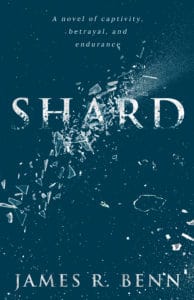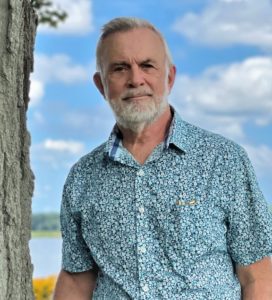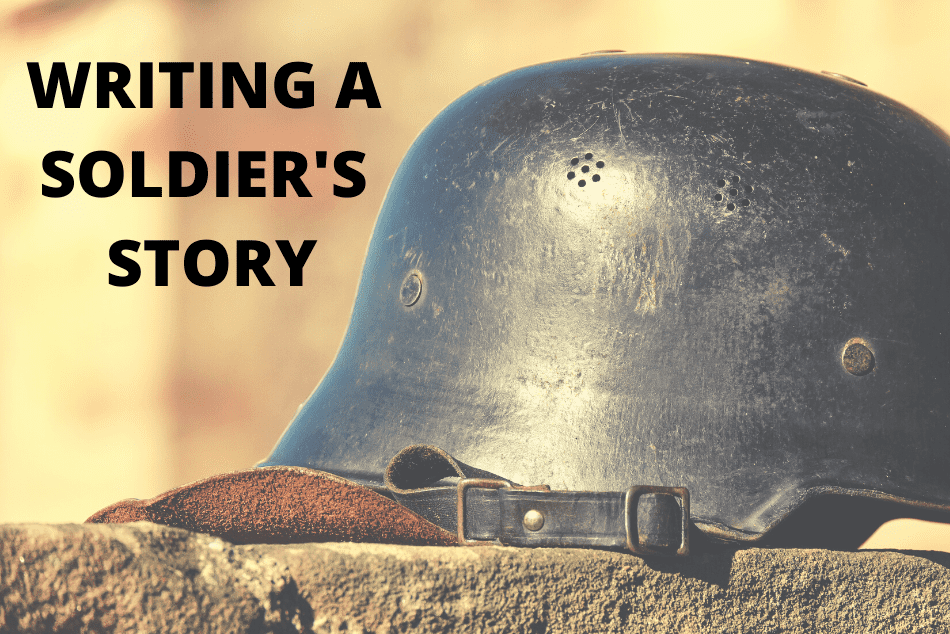In honor of Veterans Day, Career Authors talks to James R. Benn, an award-winning novelist who’s dedicated his career to chronicling the lives of our brave men and women in the military, both in his popular WWII Billy Boyle series and his new novel Shard, about “The Forgotten War.” We asked Jim about his work and what drives him to write about the unforgiving world of war.
Congratulations on the publication of Shard. Certainly, as the author of the beloved Billy Boyle WWII mysteries, you’ve experienced great success writing about war and the military. Shard takes us to a very different conflict in a very different part of the world. Tell us briefly what Shard is about—and what inspired you to tell this particular story.
Shard is about the experiences of those men who were taken prisoner during the Korean War. Those who died in the camps, those who resisted attempts to coerce them into false confessions, and those who gave in. I began this book wanting to write about a returning ex-POW and his problems adjusting to civilian life. As I researched the POW experience in Korea, I realized these were the forgotten men of a forgotten war. That’s when I knew the story had to be set in the camps. It’s a story that needed to be told.
Your protagonist Ethan Shard is very unlike Billy Boyle, the hero of your WWII series. He’s a bit of a scoundrel. Was he fun to write? How did you develop him as a character?
Ethan Shard comes from a troubled family. Early on, he had to defend his younger brother against their abusive father. He was badly treated by the courts when he was still a kid and joined the army straight out of reform school. He’s no angel, but he does have his own code. He’s a thief, but he only steals from the army, or his captors.
I came upon the name Shard when boarding an airplane several years ago. They pre-boarded active-duty troops and when I walked past a soldier in first class, I saw his name tag on his uniform. It was SHARD. I knew I’d use that name one day. When I started developing this character, it seemed perfect for a man whose life had been shattered many times over.

You choose military operations as the setting for much of your work. Telling war stories means facing the big questions: life and death, courage and perseverance, loyalty, and brotherhood, and ultimately, man’s inhumanity to man. How you weave those themes into your books? What draws you to those themes?
It is because facing those big issues in wartime provides for the grit of conflict within a character’s soul. How will one person react to those pressures? How can a protagonist stay loyal to friends with betrayal all around him? In the face of inhumanity, how can we retain a spark of humanity? And after the war, how can peace be faced after everything a soldier has seen?
Have you always been a military history buff? How did writing this book change/affect/confirm your opinions about the Korean War?
My father served in WWII, in the China-Burma-India Theater. Most of the fathers on my street when I was a kid served as well. In 1960, the war had only been over for fifteen years. It was in the air, yesterday to so many people. My father was also a big reader, everything from Agatha Christie to Bruce Canton, and that definitely set me on a course that I’m still on today. As for my opinions about the Korean War, I was stunned to learn how totally unprepared the United States was at the beginning of the conflict, and how the army had no sense of the unbelievable pressures put on the POWs in the camps. There was a coverup and a plan to place the blame for cooperation squarely on the shoulders of the returning prisoners. After years of their captors demanding names of fellow prisoners who were “reactionary”, the first thing the US Army wanted was for the former POWs to name those prisoners who were “progressive”. It was shameful.
All of your books deal with soldiers. How do you approach writing with realism about a soldier’s life?
One thing I have to constantly remind myself of is that in WWII, and Korea, our armed forces were basically built from civilians. While many Americans volunteered after Pearl Harbor, the armed forces in WWII were built on the draft. In 1940, before the start of the war, we have a grand total of 458,000 military personnel in all branches. By 1945, that had grown to over 12,000,000. Sixty-one percent of those were draftees. The vast majority simply wanted to get the job done and go home. I try to illuminate that psychic split between a man or woman at war and the pull of home, memory, and hope for survival. Within that emotional realm is where I find the truth for my characters. It’s also important to remember that they don’t know how things will turn out, who will win and who will lose. It sounds simple, but it’s not.
Writing historical fiction puts an onus on the author to portray the period and the zeitgeist accurately and authentically. What sort of research did you do to make sure you got it right?
My research touchstone is Ernest Hemingway’s Iceberg Theory. Hemingway said that only the tip of the iceberg should be visible in fiction—the reader will see only what is above the waterline—but the knowledge that you possess about your character, setting, and historical period that is not revealed acts as the bulk and heft of the iceberg. That is what gives the narrative weight and a sense of being grounded in reality. I do enough research and reading to achieve the sense of being cloaked in time and place. Then I write with a surety that allows me to dispense with the heavy weight of facts and data.
Writing a book is a journey that offers challenges, surprises, and delights. What challenged you the most in the writing of this book? What surprised you the most? What delighted you?
Shard is a hard story. There has been very little written about the Korean War POW experience. Some of what has been written, like The Manchurian Candidate, uses the brainwashing trope in a way that is dishonest and unfair to the men who endured horrors in those camps. I was constantly surprised at the depths of physical, moral, and emotional courage that so many tapped into to survive. And I am absolutely delighted at the notion of telling this story so it will never be forgotten again.

JAMES R. BENN is the Dilys, Barry, and Sue Federer Historical Mystery-award nominated author of the popular Billy Boyle WWII mystery series and three stand-alone works. His novel The Blind Goddess was long listed for the 2015 Dublin IMPAC Literary Award. Benn published two novels in 2021. ROAD OF BONES, the sixteenth Billy Boyle novel, was released in September. (The next title Billy Boyle novel, SHADOWS, will be released in September 2022.) This was followed by the stand-alone SHARD in October. SHARD is set during the Korean War and tells the little-known story of what American POWs endured in the camps and how they were mistreated by the government after their release. It is a tale of the forgotten men from a forgotten war.
Benn is a graduate of the University of Connecticut and has an MLS degree from Southern Connecticut State University. He worked in the library and information technology fields for over thirty-five years before leaving to write full-time. Benn and his wife Deborah Mandel live in Florida and Connecticut.





